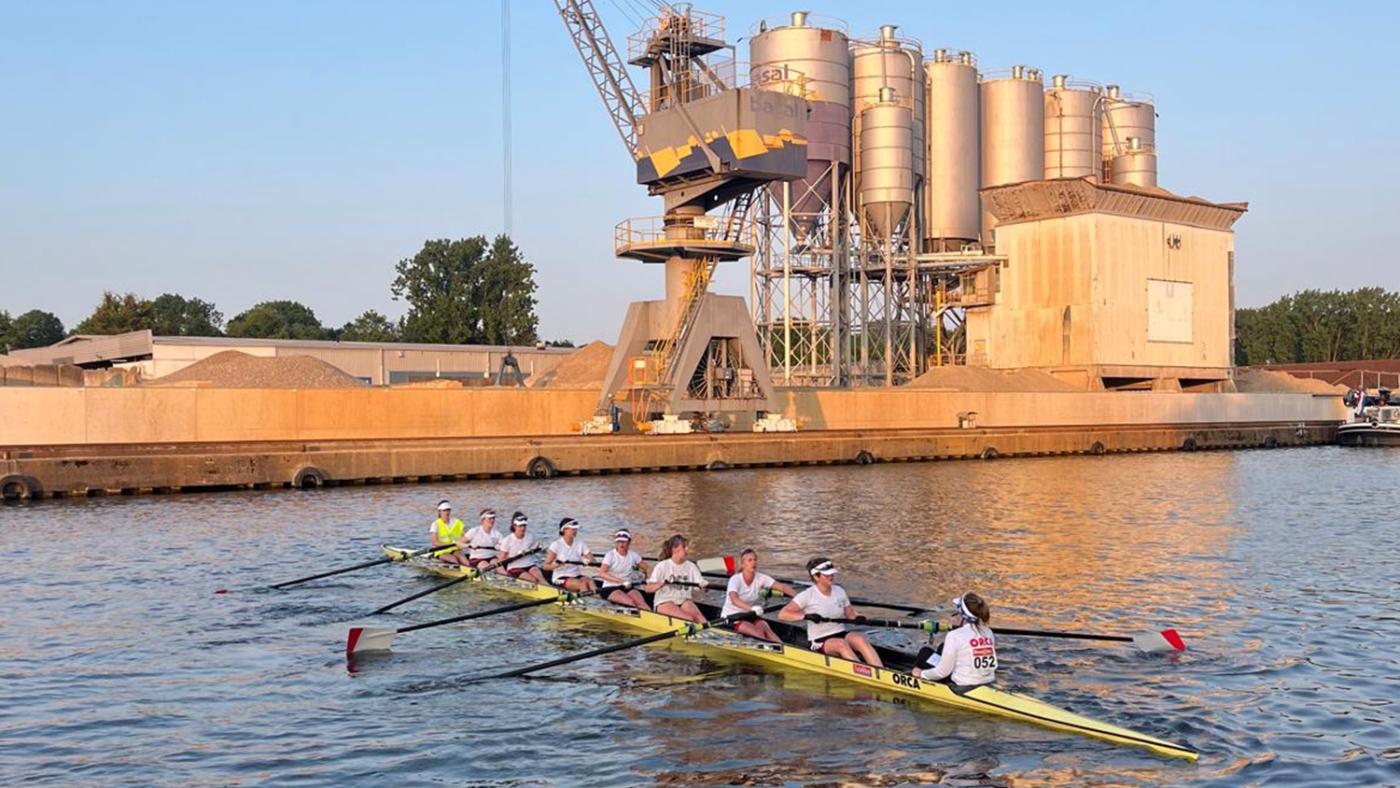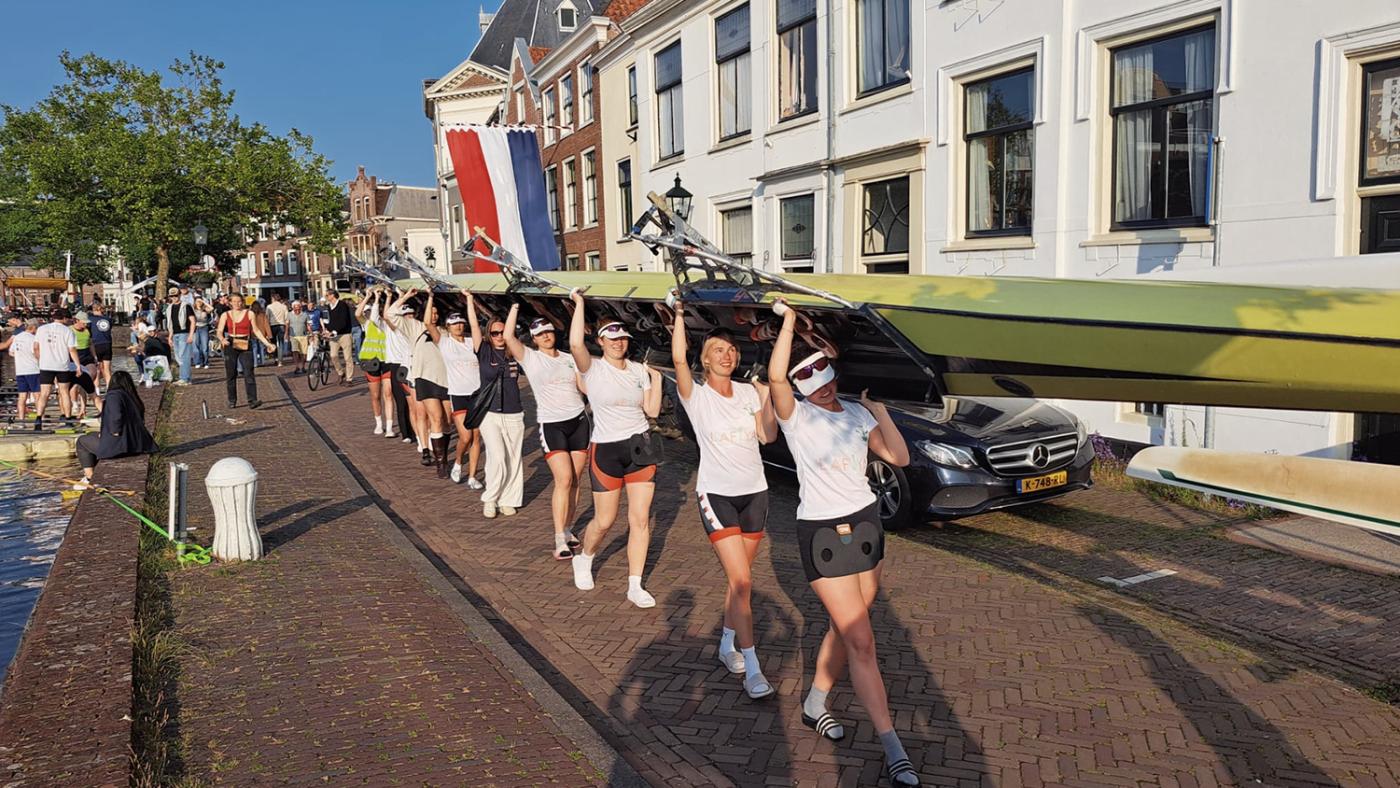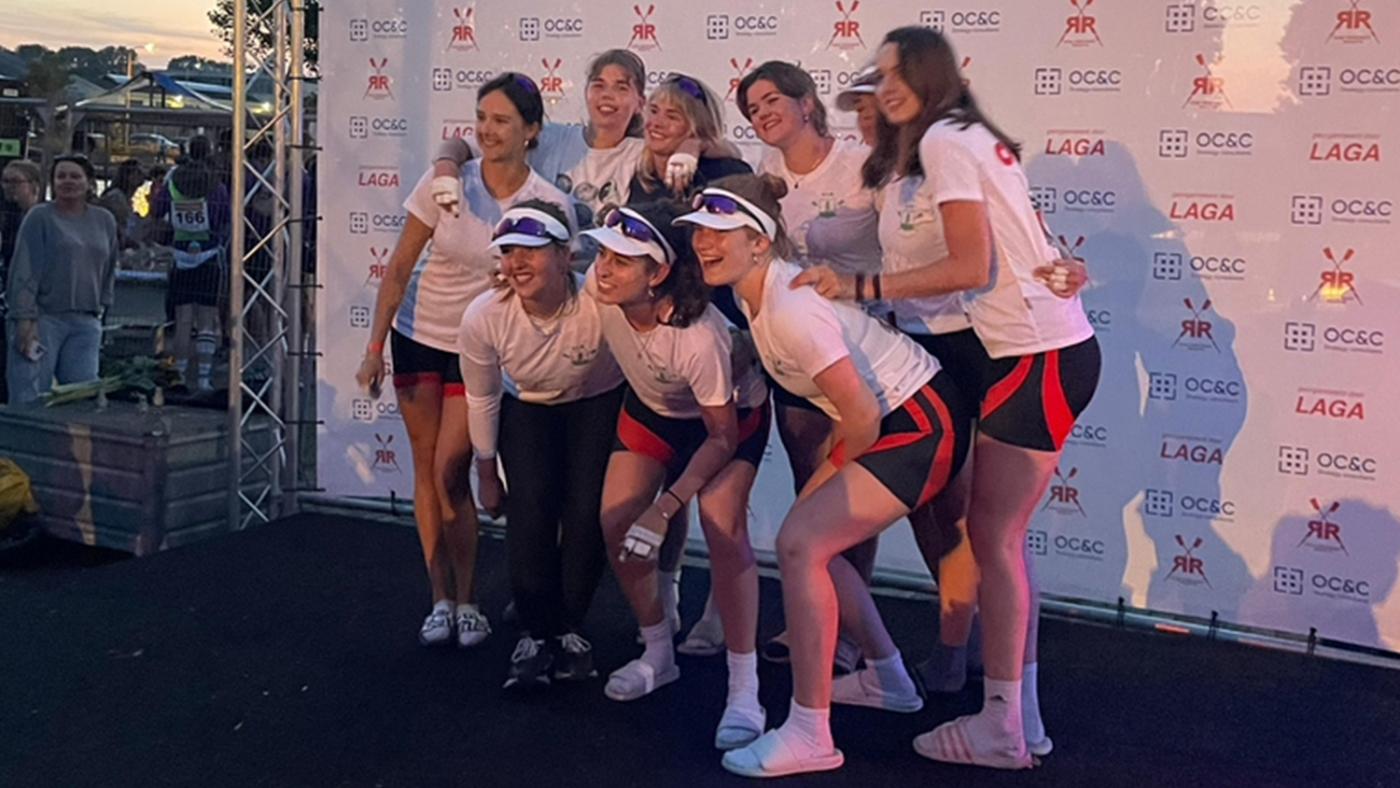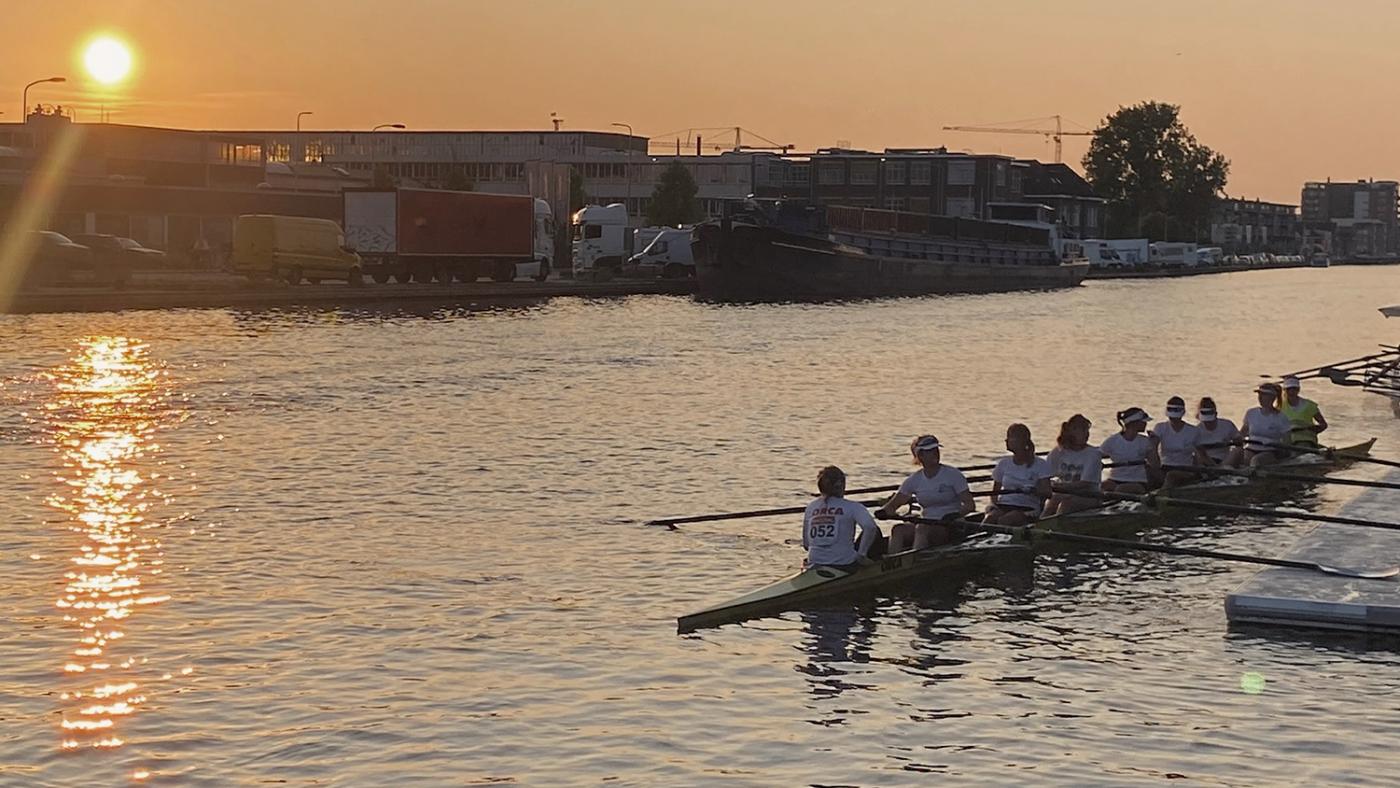‘You're almost there’
Perseverance and determination: rowing 100 kilometres for charity

The last mandatory stop in Leidschendam was a godsend. We drank what was probably the best cola of our lives and ate the last bananas. Only 12 kilometres to go. At that point, we wondered how we could manage it. But once back on the water, we unexpectedly found a second wind. Our technique is still solid, the sun is setting beautifully on the horizon, and the crowd along the water in Delft gives us wings. Everywhere, people are picnicking, clapping and shouting: ‘You're almost there!’
Yes, I rowed the Ringvaart Regatta. Together with eight other ladies – eight rowers and a coxswain – from the V.I.N. of the Orca student association. Every year, this association commits to a good cause by completing a 100-kilometre rowing marathon. This year, we decided to raise money for Lafiya Nigeria, an organisation that focuses on sexual health, safe pregnancies and education for girls and women. It was a trip we will never forget.

The sun hangs low over the water as we leave Leiden, where we started, behind us. Our blades cut synchronously through the mirror-smooth water. The first kilometres are behind us, and although the day has only just begun, we can already feel our bodies bracing themselves for what is to come. The mood is good, and we are also in good shape technically. We soon reach the Kaag river. Normally, this is a tough stretch because of the wind, but now it is calm and manageable. The sun is shining brightly; what a difference from the rain forecasted for May 28, when the race had to be cancelled.
Tears flowing freely
We had been training for May 28, but the race was cancelled the day before due to a storm with gusts of wind, heavy rain, and dangerous conditions, especially on the open water of the Kaag river. The organisers could not guarantee our safety. We were devastated. We shed some tears. Everything we had done to prepare seemed to have been for nothing.
On May 28, we sat in the sun – how ironic – and ate the pasta that had been lovingly prepared for the race. Fortunately, a new date was quickly set: June 11. So, we continued training. We also had more time to find more sponsors. We hoped for better weather, which we luckily got.
Why 100 kilometres
The first 25 kilometres are behind us. We reach our first stop in Aalsmeer. Time for a quick change of clothes, a toilet break in the woods and a few sips of water. Then we move on to Haarlem: a 17-kilometre stretch. We are still in a good mood when we get there. We've now covered 42 kilometres, so we're almost halfway there. We eat banana bread, re-tape our hands and reapply sunscreen. Slowly, we start to feel our bodies, especially our buttocks. Despite our rowing cushions, sitting is becoming increasingly painful. I secretly start to wonder why on earth anyone would want to row 100 kilometres. Fortunately, our cox tells us some interesting facts about the Ringvaart, including its history.
In 1975, she says, the first edition of the Ringvaart Regatta was organised in honour of the 100th anniversary of the Laga rowing club in Delft: a challenging 100-kilometre rowing marathon, passing places such as Leiden, Amsterdam, Haarlem and finally back to Delft. At the time, the challenge was taken up against the Njord rowing club from Leiden. This trip grew into a true tradition among enthusiastic rowers.
The fourth stop is almost in sight. We decided to skip this relatively modest stop. However, this means we have to row 25 kilometres without a break, and that turns out to be harder than expected. The pain in our buttocks becomes unbearable, and fatigue sets in. But we keep smiling, encourage each other and draw strength from the crowd along the banks. The music and cheering carry us through. Our technique, which we have practised endlessly, also keeps us keep going.

Technique over strength
Our coaches had been telling us for weeks: ‘It's going to be tough, no matter how strong you are. But if you work well as a team, it makes a huge difference!’ When we started training in February, we soon realised that combining rowing with our busy student lives was no easy task. Training together was difficult, so we split up. We practised specific elements: short, powerful strokes for open water, such as the Kaag river, rowing in perfect synchronisation and passing low bridges.
We took our preparation seriously. Two weeks before the scheduled race, on May 28, we took our training to the next level: no alcohol, no parties, early bedtimes, and some of our team members even gave up smoking. We also gathered all the necessary equipment, such as sports tape for blisters, energy gel, protein bars, sports glasses, bailers and Allen keys. The list seemed endless. Oh yeah, let's not forget the Tupperware containers full of pasta for the road. We stuck to our plan until the new date, but we had to make pasta again.
Endless kilometres
After 62 kilometres, we stopped and ate this delicious pasta in Lisse. We did some stretching exercises and were cheered on by parents and friends along the side of the road. We decide to skip the next stop, but this proves harder than expected. The last stop at 88 kilometres seems to be getting no closer. The pain in our bottoms becomes unbearable, and fatigue sets in. Fortunately, Leidschendam finally comes into view.
After a short break, we get back on the water. The last three kilometres seem endless, but we know we're going to make it. At the finish line, our parents are cheering us on from the quay. We barely have the strength to lift the boat out of the water, but we've done it: we've rowed 100 kilometres.

Proud, tired and sore
It is a quarter past nine in the evening. The sun is setting, we are exhausted, but proud. It took us over 13 hours. After rigging and dismantling the boat, we are warmly welcomed by family and friends. At home, we fall asleep almost immediately. Physically broken, but mentally satisfied.
The next day, we are very sore, but less sore than expected. We are very proud of our achievement and find the experience much more positive than we had anticipated. If you want to row the ring canal, you need a lot of perseverance, encouragement and a strong bum. Although my fitness and strength proved to be excellent, my bum has never hurt this much.